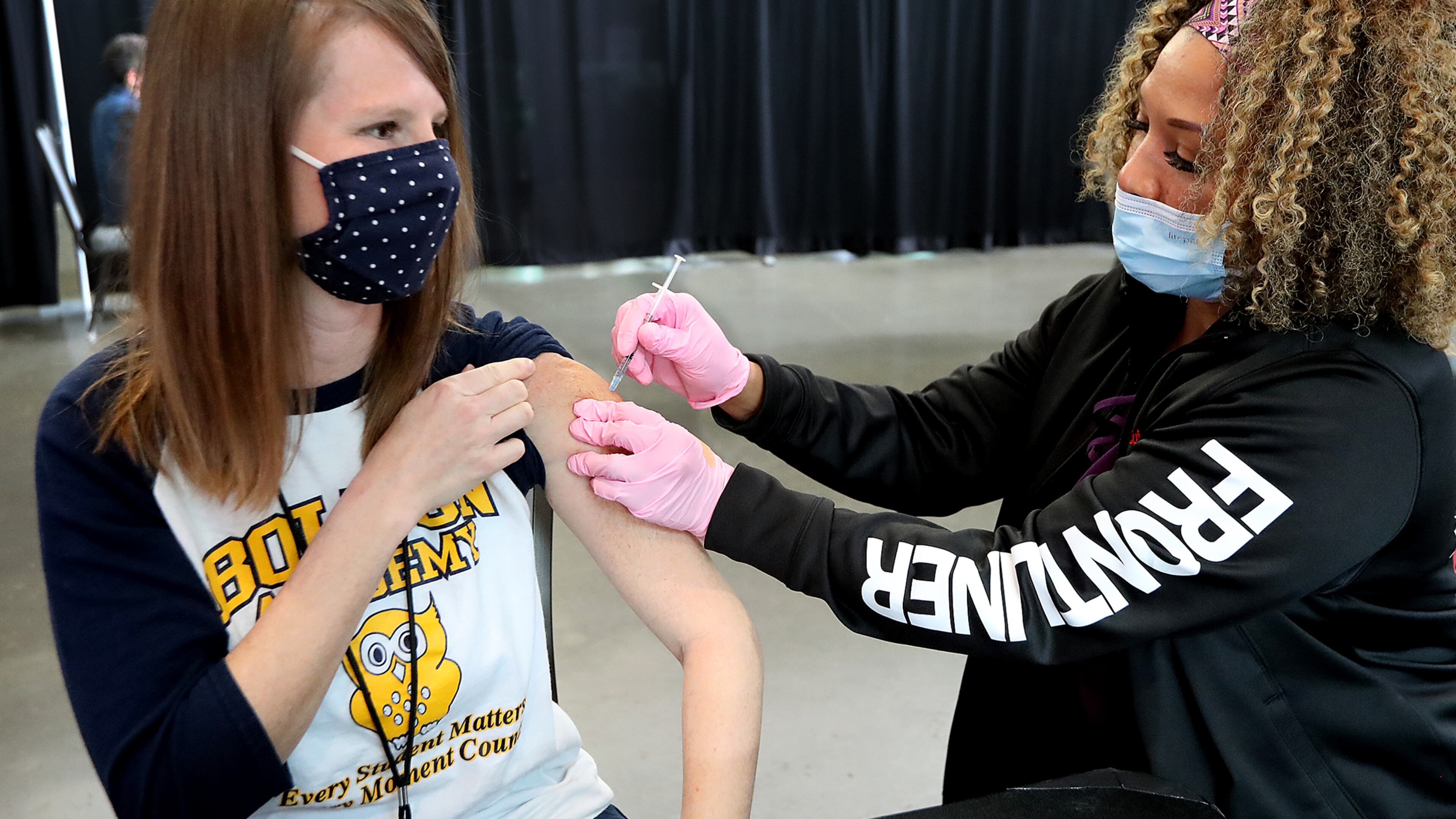Atlanta Public Schools expands health services into team approach

Pushed into the spotlight by the pandemic, a once-small Atlanta Public Schools health services program is growing.
The program was previously a solo operation in the 50,000-student district. Valencia Hildreth oversaw health-related initiatives — from monitoring immunization requirements to tracking chronic illnesses — while supporting the nurses assigned to nearly every Atlanta school.
“It was a one-woman show with nurses dancing in the background,” said Hildreth.
The workload ballooned with the spread of COVID-19. Suddenly, there were safety measures such as mask rules to consider as well as thousands of cases to record and investigate.
To respond to the onslaught, APS built out a health services department this year that now boasts a staff of 10. Hildreth was named its director. The newly hired reinforcements include an epidemiologist, who officials said is the only one to work full time in that capacity for a Georgia school system, as well as a district registered nurse, school health coordinator and COVID-19 case investigators.
The annual health services budget increased by about 21% to more than $1.5 million this year, paid for through a mix of APS’ general fund and federal stimulus dollars.
In addition to working with nurses who take care of students at individual schools, the department provides districtwide services to check compliance issues, track diseases and assist children with disabilities.
Hildreth said the expansion allows for a coordinated, team approach to care for students’ health.
She hopes to sustain the enhanced effort at some level even after the worst of the pandemic is over. Healthier students perform better in the classroom, she said.
Historically, the most frequently seen conditions among Atlanta students include asthma, diabetes, seizures and allergies, she said. By partnering with community health agencies and addressing health disparities in specific Atlanta communities, she hopes to reduce absenteeism and boost graduation rates.
“We didn’t really see the importance of health until we had the pandemic hit,” Hildreth said.
In December, APS reported a big uptick in COVID-19 cases during the final week of the semester. The 435 cases reported the week ending Dec. 17 was its highest count since August.
On Monday, the Georgia Department of Health did not report new coronavirus data “due to a large amount of data overwhelming the system.” On Friday, DPH reported 24,320 confirmed and probable coronavirus infections, the second-highest total of the pandemic.
As the newly hired school-based health coordinator, Twanna House is working with the handful of clinics housed inside Atlanta schools that provide medical care to students. She’s also helping out with COVID-19 vaccination events, seeking grant funding for feminine hygiene products for students and supporting the district’s focus on children’s mental health.

Juliana Prieto joined the team in the fall. She’s an epidemiologist who worked for the Fulton County Board of Health on the COVID-19 response and previously dealt with the Zika virus at the Florida Department of Health.
Just two weeks after APS announced her hiring in November, she was helping to explain the district’s pandemic strategies. At a board meeting in December, she stood with a notepad in hand, adjusted a microphone and outlined the district’s plans to relax mask rules in February, if conditions allow.
Prieto said COVID-19 requires school systems to work more closely with public health agencies: “It’s a daily call now.”
In the coming months, she’ll monitor the omicron variant and local case counts. She’s also urging parents to vaccinate their children and remain cautious if traveling over the holiday break.
“We just want to make sure we are ready for the next pandemic or next health situation that may come. A lot of schools and governments and employers were just not ready,” Prieto said.


